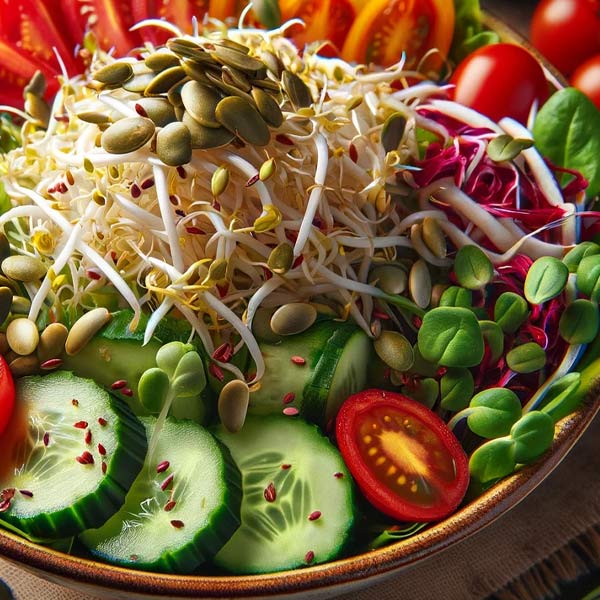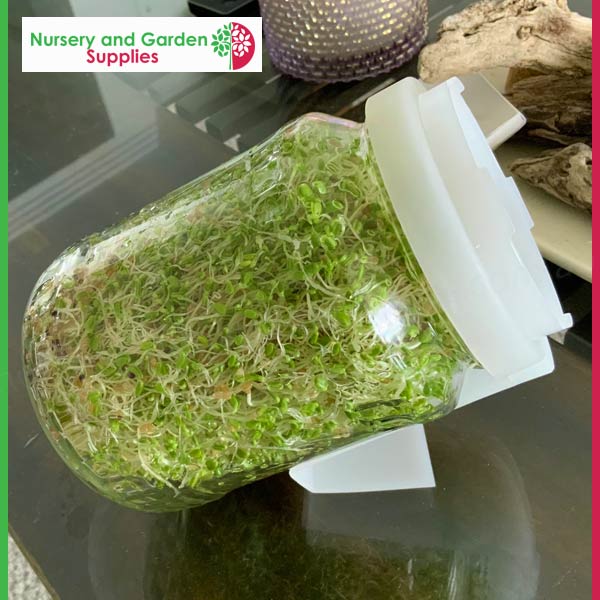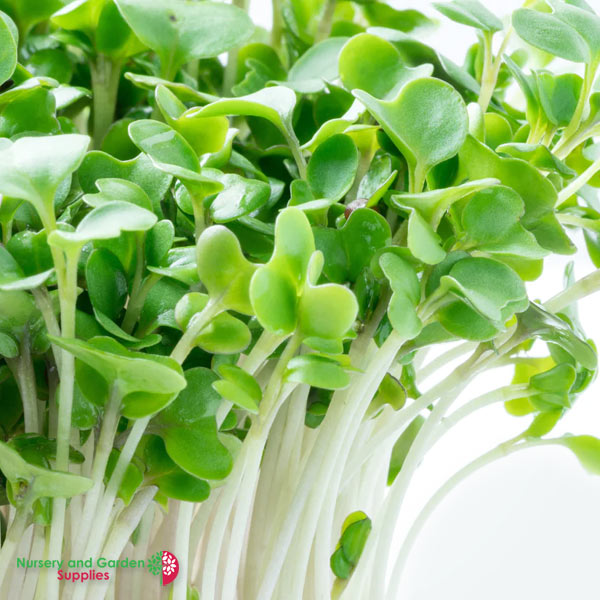The short answer is ‘YES’, eating sprouts is great for your health.
But while sprouts offer many health benefits, it’s important to consume them safely.
WHY ARE SPROUTS SO RICH IN GOODNESS?
Since a seed is not able to make energy through photosynthesis or suck up nutrients through their roots, they need to have all the energy and nutrients they will need for their first few days of life stored up. Once they start to sprout they release all of this energy and nutrients into tasty sprouts. This makes the sprouts particularly jam-packed full of fibre, vitamins, minerals, essential amino acids and antioxidants. Additionally, they’re low in things like fat, sodium and calories.
“They are high in vitamin K, many B vitamins like niacin, riboflavin, thiamin, folate, and pantothenic acid, as well as vitamin C and vitamin A,” says Amy Shapiro, MS, RD, CDN, founder of Real Nutrition. “Sprouts also contain minerals like zinc, calcium, manganese, and copper.” Broccoli sprouts may help protect the body against cancer by reducing the spread of cancerous cells and supporting the body to eliminate harmful substances. Shapiro adds, “broccoli sprouts are about 50 times more powerful in cancer prevention than their mature counterpart.”
Incorporating raw sprouts into your diet can significantly improve gut health. You can toss them into a salad, use as a garnish or even add to a stir fry! In fact, they have higher amounts of these nutrients than fully-grown versions of the same plants.
Once you have fresh sprouts home, they should be chilled and stored in a refrigerator. The appearance of your sprouts are a guide as well. If they’re even a bit slimy, smelly or musty, you should throw them out right away. Click here to look at various organically grown sprout seeds…

THE NUTRITIONAL SCIENCE BEHIND THE SPROUT CRAZE
Sprouts that are soaked in water have elevated enzyme levels, which, when paired with fibre, optimizes the breakdown of food in your gut, and helps with smooth movement through the gastrointestinal tract. Sprouts are an excellent choice for promoting good digestion. Research indicates that sprouting seeds have boosted fibre content, which nourishes the beneficial bacteria in your intestines. These play a vital role in sustaining a stable digestive system, potentially easing symptoms such as bloating and gas.
One nutrient contained in many sprouts is Vitamin K. This has been linked to healthier bones, efficient blood clotting, and numerous other physiological processes.
Sprouts contain the naturally occurring compound sulforaphane, which not only supports balanced estrogen levels and mitigates hangover effects but also triggers the body’s immune defenses against viruses. Including sprouts in your meals could also contribute to heart health. Studies suggest that sprouts may help lower cholesterol levels in individuals with diabetes or obesity, with findings showing improvements in “good” HDL cholesterol levels and reductions in triglycerides and “bad” LDL cholesterol. These cholesterol adjustments are linked to decreased risks of heart disease.
Sprouts can be categorized into four main types, each with unique flavours and health benefits:
- Bean and Pea Sprouts: This group includes varieties like mung beans, kidney beans, black beans, lentils, and snow pea sprouts.
- Vegetable Sprouts: Examples include broccoli, alfalfa, mustard greens, and red clover sprouts.
- Nut and Seed Sprouts: This category features pumpkin seeds, sesame seeds, and sunflower seed sprouts.
- Sprouted Grains: Notable mentions are wheatgrass and quinoa sprouts.

STORAGE GOOD PRACTICE POINTERS
Raw sprouts have been associated with a risk of foodborne illnesses due to bacteria such as Salmonella and E. coli if consumed after their use-by times. To reduce this risk, we have come up with some good tips to remember. There are a small number of cases where sprout consumption has led to food poisoning. It is important to exercise correct hygiene habits to nullify this risk. Here are some simple precautions:
It is recommended that you either sprout them yourself in well controlled environments using propagation supplies or else only purchase sprouts from reputable sources.
- Never buy or eat slimy or smelly sprouts
- Once grown, keep sprouts chilled below 9 degrees Celcius at all times
- Take caution with sanitisation if attempting to make sprouts at home
- Rinse sprouts well before eating
- Always wash your hands before handling sprouts
- Consider cooking them, especially for people who are pregnant, elderly, or have compromised immune systems.
- It’s also worth noting that although raw sprouts are very nutritious, not everyone’s digestive system can tolerate them.
To finish off, let’s summarise the key reasons that eating yummy sprouts should leave you feeling fresher and healthier.
- Rich in Nutrients: Sprouts are a powerhouse of vital nutrients, including vitamins A, C, E, and K, alongside important minerals like calcium, iron, magnesium, and potassium.
- Antioxidant-Rich: They are packed with antioxidants that combat free radicals, potentially reducing oxidative stress and the risk of chronic diseases.
- Supports Digestive Health: Enzymes in sprouts enhance digestion and nutrient absorption, fostering healthy gut flora for improved digestion and regular bowel movements.
- Boosts Immunity: The array of vitamins and minerals in sprouts bolsters the immune system, aiding in the fight against infections and diseases.
- Aids in Weight Management: Low in calories yet high in fibre, sprouts can help you feel satiated longer, supporting weight management goals.
- Promotes Cardiovascular Health: Research indicates that sprouts can positively influence cholesterol levels and lower heart disease risk.
- Regulates Blood Sugar: With a low glycemic index, sprouts ensure a slow, steady rise in blood sugar levels, beneficial for those monitoring blood sugar.
- Enhances Skin Health: The nutrients and antioxidants in sprouts can lead to healthier, more vibrant skin.
- Detoxifies the Body: High fibre content in sprouts aids in the elimination of toxins, promoting overall detoxification and well-being.








